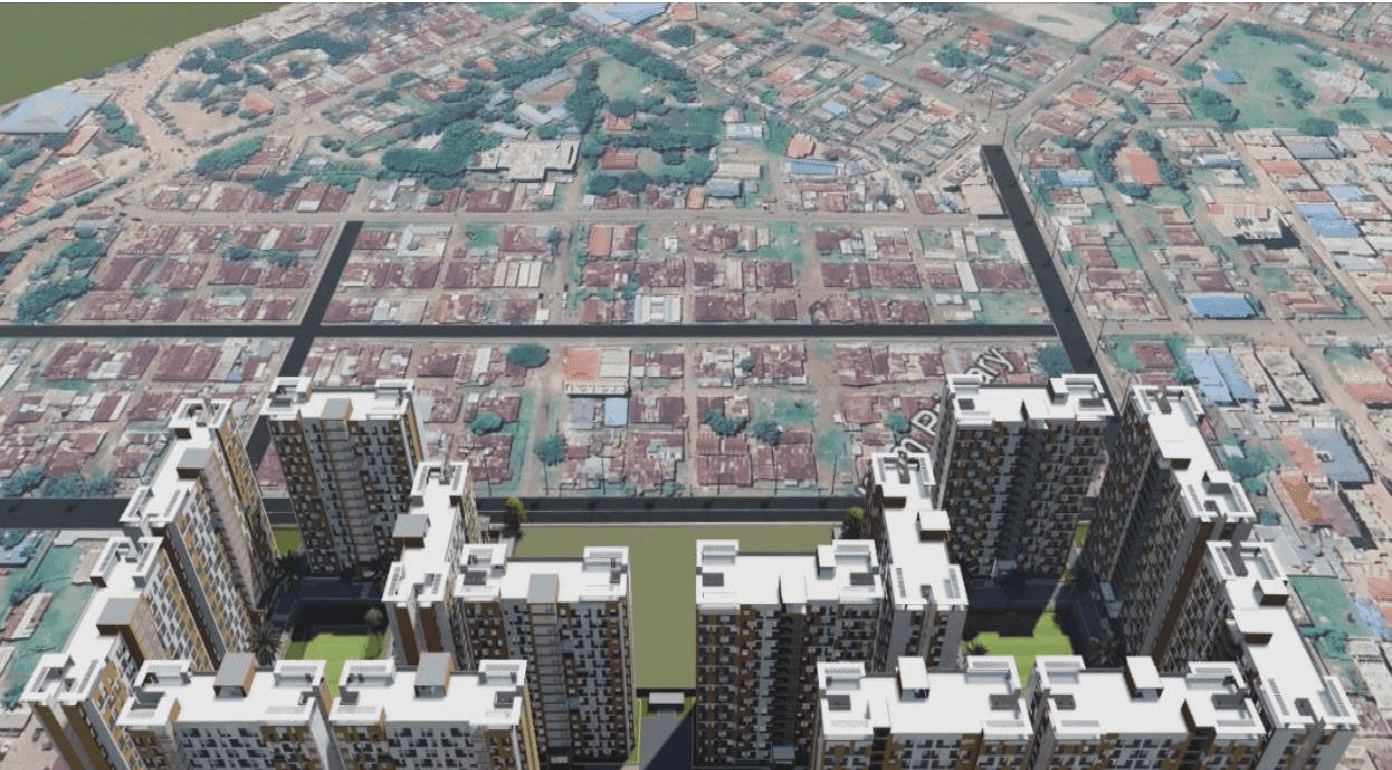We're loading the full news article for you. This includes the article content, images, author information, and related articles.
Kisumu County has signed a Letter of Intent with UN-Habitat for a KSh 2.7 billion social housing upgrade programme, aiming to transform informal settlements and provide affordable homes for vulnerable populations.

Kisumu County has officially partnered with the United Nations Human Settlements Programme (UN-Habitat) to launch a significant social housing upgrade programme. The initiative, valued at KSh 2.7 billion for both Kisumu and Nairobi, is set to improve living conditions in informal settlements and deliver affordable housing units. The agreement was formalised on Thursday, October 2, 2025, with Governor Prof. Anyang' Nyong'o and UN-Habitat Executive Director in Kenya, Anaclaudia Rossbach, signing the Letter of Intent in Kisumu.
This partnership falls under the Partnership for the Implementation of the New Urban Agenda (PINUA) plan, which aims to foster sustainable, inclusive, and community-led urban development. The programme will focus on providing essential social infrastructure, including schools, sanitation facilities, affordable rental housing, early childhood development centres, and public open spaces.
Pilot projects are scheduled to commence on November 1, 2025, in Kibuye Estate and Muhoroni Sub-County. These initial phases will be based on designs developed through extensive public participation. According to UN-Habitat housing architect Fred Omenya, the construction of two blocks comprising 24 housing units in Kibuye Estate will begin in January 2026.
UN-Habitat will fully fund the construction of these units. The estimated costs are KSh 1.8 million for one-bedroom units, KSh 2.4 million for two-bedroom units, and KSh 2.7 million for three-bedroom units. In Muhoroni's Shauri Yako area, the project will adopt a cooperative financial model, backed by the European Union, to construct up to 800 housing units. Of these, 20 homes will be provided free of charge to the most vulnerable families, while the remaining 780 units will be financed through cooperative savings and loans.
The full project in Kibuye is expected to deliver 360 affordable one- and two-bedroom units, which will remain part of the county's rental housing stock. Redevelopment in Kibuye will be carefully managed, with only five blocks initially affected, not the entire estate.
Kisumu, as one of Kenya's fastest-growing urban centres, faces significant challenges in providing adequate and affordable housing for its expanding population. The city's growth has largely been organic, leading to a substantial housing deficit often met by informal settlements with poor living conditions. The Kisumu County Government has been actively pursuing various strategies to address this, including promoting public-private partnerships and improving land tenure systems.
This new partnership aligns with Kisumu's broader urban development plans, including the Integrated Strategic Urban Development (ISUD) Plan and the Kisumu Urban Project (KUP), which aim to modernise public policies, improve spatial planning, and upgrade slums. The county has also been working on repositioning Kisumu as a lake-facing economic hub, with initiatives focusing on lakefront development.
The initiative is in line with national objectives such as Kenya Vision 2030 and the 'Big Four Agenda' which prioritises affordable housing. UN-Habitat's involvement in Kenya spans 22 counties since 2013, supporting human settlements and sustainable urbanisation priorities. The organisation has also been instrumental in establishing a global social housing and cooperation hub, connecting cities to advance innovative solutions for inclusive housing and slum transformation.
Public participation has been a key component in the planning of these projects, ensuring community input into the designs and models. Governor Nyong'o has emphasised the county's commitment to closing the financing gap in social housing and improving living conditions in existing neighbourhoods.
Analysts suggest that the success of this development hinges on clear timelines, cost management, and robust safeguards. The challenges in providing low-cost housing in Kisumu include high land costs, limited access to financing for developers, and occasional community resistance. Ensuring transparent land tenure systems, particularly in informal settlements, remains crucial for project effectiveness.
The implementation of the pilot projects in Kibuye Estate and Muhoroni Sub-County will be a key indicator of the programme's trajectory. Stakeholders will be closely monitoring the effectiveness of the cooperative financial model in Muhoroni and the management of redevelopment in Kibuye. The ongoing efforts to integrate these projects with Kisumu's broader urban development and economic revitalisation plans will also be critical.
This initiative complements other affordable housing projects in Kisumu, such as the Anderson Affordable Housing Project and the Makasembo Affordable Housing Project, which are being undertaken by various partners including the Local Authorities Pensions Trust (Laptrust) and the County Pension Fund (CPF). The national government's Affordable Housing Programme (AHP) also continues to drive housing development across the country.
Keep the conversation in one place—threads here stay linked to the story and in the forums.
Sign in to start a discussion
Start a conversation about this story and keep it linked here.
Other hot threads
E-sports and Gaming Community in Kenya
Active 9 months ago
The Role of Technology in Modern Agriculture (AgriTech)
Active 9 months ago
Popular Recreational Activities Across Counties
Active 9 months ago
Investing in Youth Sports Development Programs
Active 9 months ago
Key figures and persons of interest featured in this article